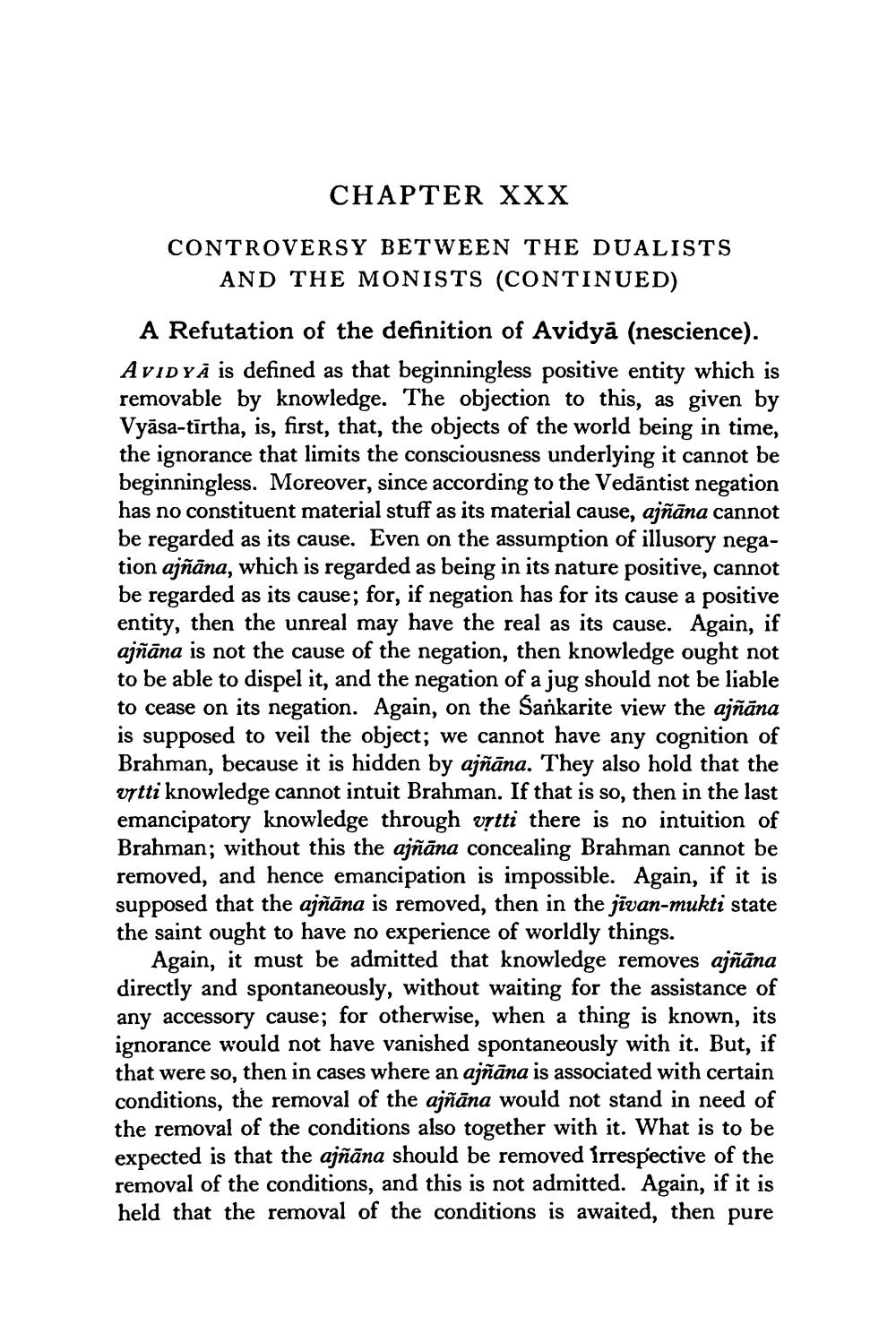________________
CHAPTER XXX
CONTROVERSY BETWEEN THE DUALISTS
AND THE MONISTS (CONTINUED)
A Refutation of the definition of Avidyā (nescience). AVIDYA is defined as that beginningless positive entity which is removable by knowledge. The objection to this, as given by Vyāsa-tīrtha, is, first, that, the objects of the world being in time, the ignorance that limits the consciousness underlying it cannot be beginningless. Moreover, since according to the Vedāntist negation has no constituent material stuff as its material cause, ajñāna cannot be regarded as its cause. Even on the assumption of illusory negation ajñāna, which is regarded as being in its nature positive, cannot be regarded as its cause; for, if negation has for its cause a positive entity, then the unreal may have the real as its cause. Again, if ajñāna is not the cause of the negation, then knowledge ought not to be able to dispel it, and the negation of a jug should not be liable to cease on its negation. Again, on the Sankarite view the ajñāna is supposed to veil the object; we cannot have any cognition of Brahman, because it is hidden by ajñāna. They also hold that the vytti knowledge cannot intuit Brahman. If that is so, then in the last emancipatory knowledge through vịtti there is no intuition of Brahman; without this the ajñāna concealing Brahman cannot be removed, and hence emancipation is impossible. Again, if it is supposed that the ajñāna is removed, then in the jīvan-mukti state the saint ought to have no experience of worldly things.
Again, it must be admitted that knowledge removes ajñāna directly and spontaneously, without waiting for the assistance of any accessory cause; for otherwise, when a thing is known, its ignorance would not have vanished spontaneously with it. But, if that were so, then in cases where an ajñāna is associated with certain conditions, the removal of the ajñāna would not stand in need of the removal of the conditions also together with it. What is to be expected is that the ajñāna should be removed irrespective of the removal of the conditions, and this is not admitted. Again, if it is held that the removal of the conditions is awaited, then pure




